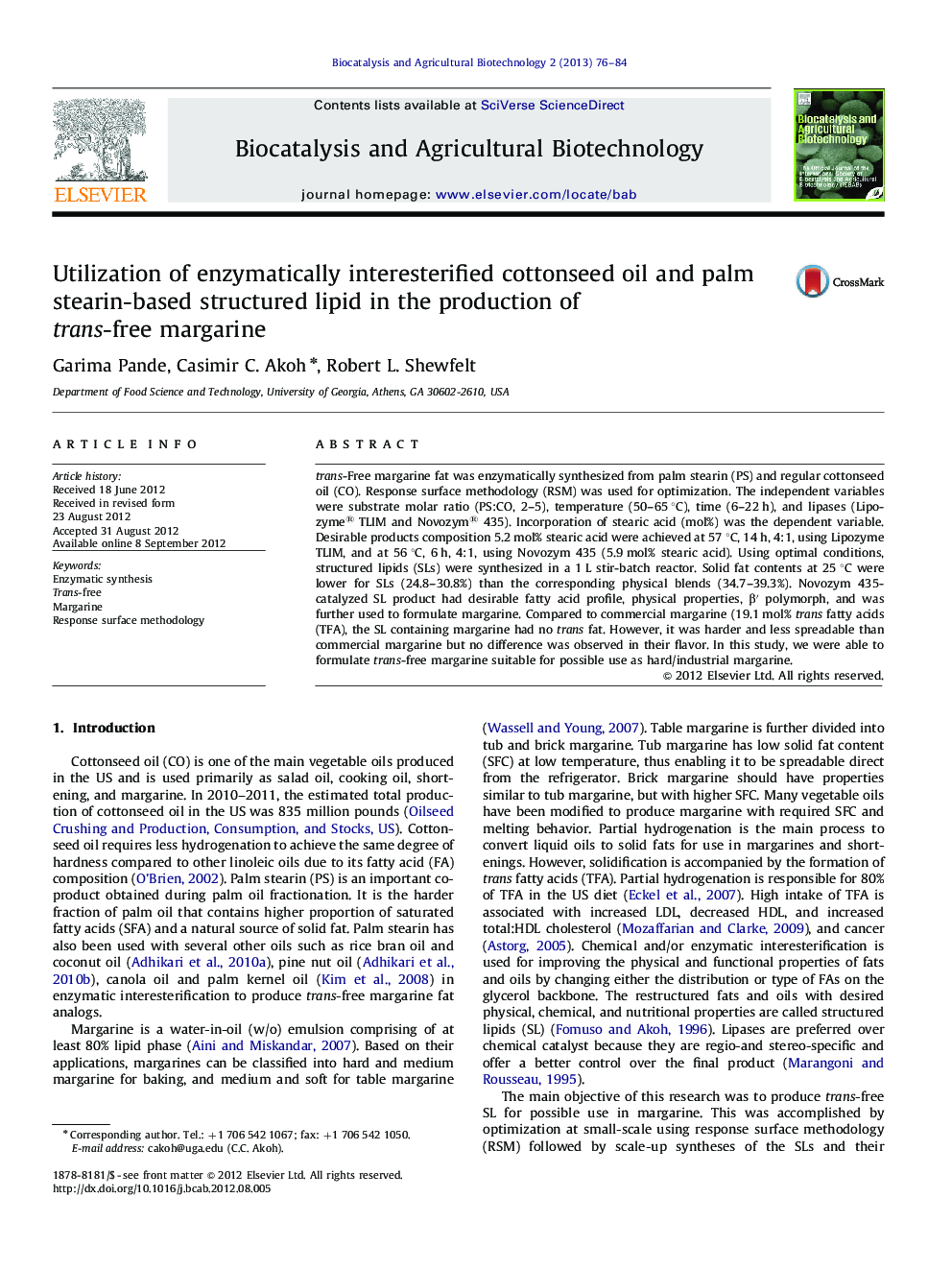| Article ID | Journal | Published Year | Pages | File Type |
|---|---|---|---|---|
| 2075489 | Biocatalysis and Agricultural Biotechnology | 2013 | 9 Pages |
trans-Free margarine fat was enzymatically synthesized from palm stearin (PS) and regular cottonseed oil (CO). Response surface methodology (RSM) was used for optimization. The independent variables were substrate molar ratio (PS:CO, 2–5), temperature (50–65 °C), time (6–22 h), and lipases (Lipozyme® TLIM and Novozym® 435). Incorporation of stearic acid (mol%) was the dependent variable. Desirable products composition 5.2 mol% stearic acid were achieved at 57 °C, 14 h, 4:1, using Lipozyme TLIM, and at 56 °C, 6 h, 4:1, using Novozym 435 (5.9 mol% stearic acid). Using optimal conditions, structured lipids (SLs) were synthesized in a 1 L stir-batch reactor. Solid fat contents at 25 °C were lower for SLs (24.8–30.8%) than the corresponding physical blends (34.7–39.3%). Novozym 435-catalyzed SL product had desirable fatty acid profile, physical properties, β′ polymorph, and was further used to formulate margarine. Compared to commercial margarine (19.1 mol% trans fatty acids (TFA), the SL containing margarine had no trans fat. However, it was harder and less spreadable than commercial margarine but no difference was observed in their flavor. In this study, we were able to formulate trans-free margarine suitable for possible use as hard/industrial margarine.
